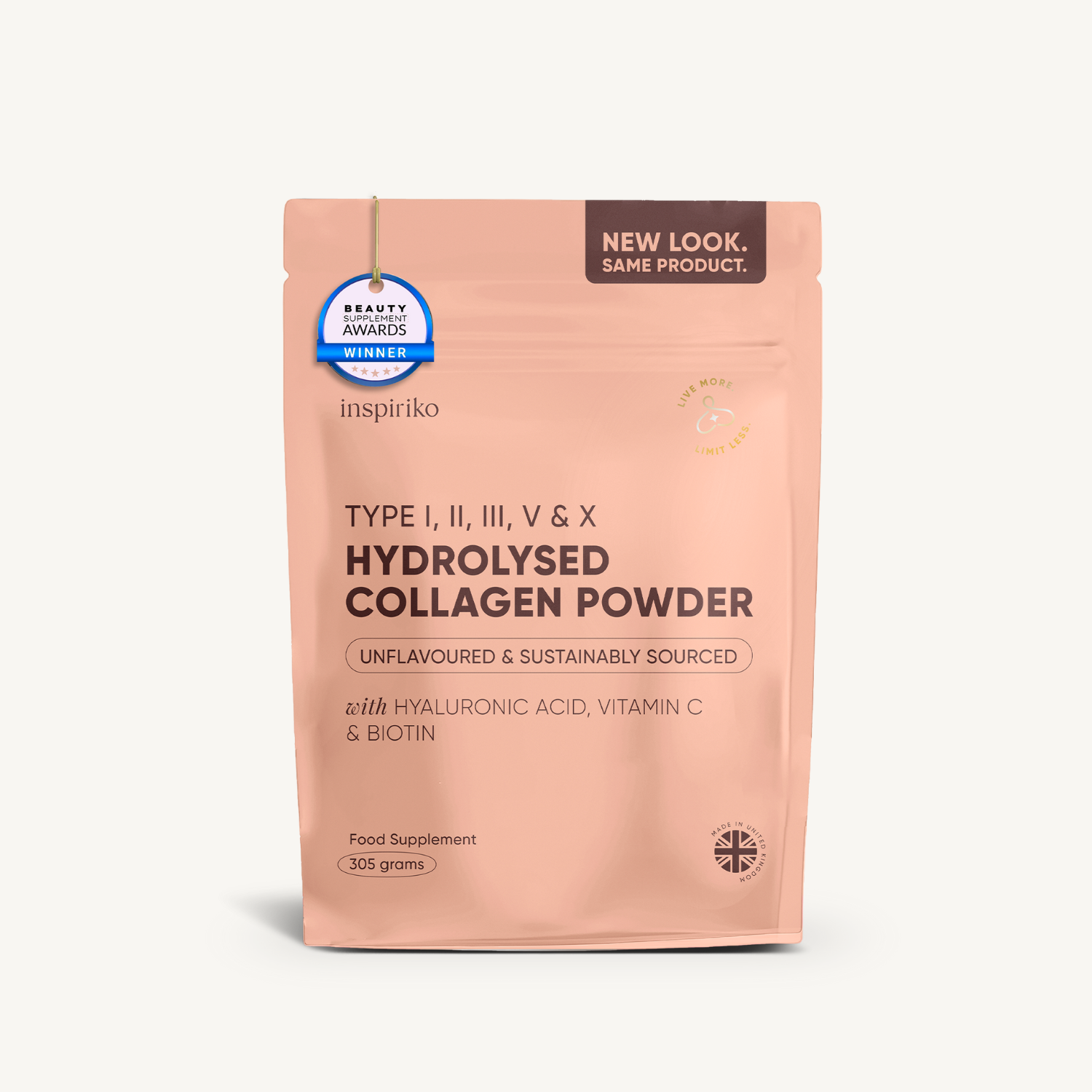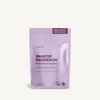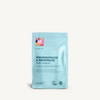Perimenopause can feel like a whirlwind of changes—hot flushes, mood swings, sleep disturbances, and, surprisingly, brain fog. If you’ve ever found yourself forgetting words mid-sentence or struggling to recall simple tasks, you’re not alone. Brain fog during perimenopause is a common yet often overlooked symptom, leaving many women feeling frustrated and uncertain.
But why does this happen? As your hormone levels, particularly oestrogen, fluctuate, they can affect cognitive function, mood stability, and even your sleep patterns. The good news is that brain fog doesn’t have to be a permanent part of your life. By understanding its root causes and adopting a few practical strategies, you can support your brain health and maintain mental clarity.
In this article, we’ll explore how to deal with perimenopause and its impact on your brain, covering evidence-based tips, lifestyle changes, and natural supplements that can help you feel sharper and more focused.

What Causes Brain Fog During Perimenopause?
Perimenopausal brain fog can feel overwhelming, but understanding its root causes is the first step towards managing it effectively. Several factors contribute to cognitive changes during this phase, including hormonal fluctuations, sleep disturbances, stress, and nutrient deficiencies. Let’s break down each one.
Hormonal Fluctuations
One of the primary causes of brain fog during perimenopause is the decline in oestrogen levels. Oestrogen plays a vital role in memory formation and cognitive function, particularly in brain areas associated with memory and attention.
A 2025 study (1) found that hormone therapy in post-menopausal women was linked to improved episodic memory, working memory, and visuospatial processing. This suggests that the decline in oestrogen during menopause may negatively impact these cognitive domains, but hormone therapy can help preserve mental clarity.
Get to know the best ways to balance your hormones!

Sleep Disruptions
Hot flashes and night sweats often interfere with sleep during perimenopause, leading to cognitive difficulties. Poor sleep quality, rather than just short sleep duration, is particularly linked to brain fog.
A 2021 study found a strong correlation between hot flashes and poor sleep quality (2), while a noting that despite longer sleep duration during night sweats, women still showed impaired cognitive performance. This highlights that quality sleep is essential for maintaining mental clarity and focus.
Stress and Mood Changes
Stress and anxiety can further exacerbate brain fog. Perimenopause is often accompanied by mood fluctuations, and when stress levels rise, cognitive functions like memory and attention can take a hit.
A 2015 study from PMC (3) found that anxiety and acute stress are directly linked to working memory impairment. The study proposed that anxiety disrupts the central executive component of working memory, which is crucial for tasks like planning and decision-making. Managing stress is, therefore, essential for maintaining cognitive performance.
Nutrient Deficiencies
Certain micronutrients are vital for brain health, and deficiencies can contribute to cognitive decline. In particular, magnesium and B vitamins play a crucial role in maintaining mental clarity and energy.
A 2024 study (4) highlighted that magnesium supplementation improved cognitive function and synaptic plasticity. Magnesium L-threonate, in particular, was shown to increase brain magnesium levels, enhancing cognitive tasks. Plus, it discovered that deficiencies in vitamin B12 are associated with memory loss, irritability, and even depression, underscoring the importance of balanced nutrition.
Find your perfect supplement in minutes! Take our quiz to get personalized recommendations tailored to your body and lifestyle.
How to Deal with Brain Fog Naturally During Perimenopause?
Luckily, there are several natural approaches that can make a difference when it comes to managing brain fog during perimenopause. By adopting a holistic approach that includes sleep hygiene, stress management, proper nutrition, mental stimulation, and physical activity, you can support your cognitive health and regain mental clarity.
a. Prioritise Sleep Hygiene
One of the most impactful ways to reduce brain fog is to improve sleep quality. Sleep disruptions during perimenopause—often caused by night sweats and hormonal changes—can significantly impair cognitive function.
To promote restful sleep, establish a calming bedtime routine:
-
Dim the lights, avoid screens at least an hour before bed, and create a comfortable sleeping environment.
-
Consider using natural sleep aids like Cosmic Calm Herbal Sleep Aid, which contains potent ingredients like Affron® saffron and chamomile extract. These ingredients support relaxation, reduce anxiety, and promote deeper sleep without the grogginess that often comes with synthetic alternatives.

b. Manage Stress Effectively
Stress is a major contributor to brain fog, as it impacts memory and concentration. During perimenopause, managing stress becomes even more crucial due to fluctuating hormones.
To combat stress:
-
Practise mindfulness and relaxation techniques, such as yoga, deep breathing exercises, or meditation.
-
Make time for activities you enjoy, whether it’s gardening, journaling, or a simple walk in nature.
-
Use stress-relieving supplements containing Ashwagandha, a clinically proven adaptogen that helps balance cortisol levels.
c. Nutritional Support for Cognitive Health
Your diet plays a fundamental role in maintaining brain function during perimenopause. Choosing nutrient-dense, brain-boosting foods can help reduce the effects of brain fog.
-
Eat omega-3-rich foods like salmon, flaxseeds, and walnuts to support cognitive function. Omega-3s are essential for maintaining the structure of brain cell membranes.
-
Stay hydrated by drinking plenty of water throughout the day, as dehydration can impair concentration and memory.
-
Supplement wisely: Incorporate Chelated Magnesium Glycinate to support mood stability and cognitive clarity. Magnesium has been shown to improve memory and reduce stress, making it an excellent addition to your daily routine.
d. Keep Your Brain Active
Mental stimulation is essential for maintaining cognitive function during perimenopause. Engaging in challenging activities helps keep your brain sharp and adaptable.
-
Try puzzles, crosswords, or learning a new skill, like a language or musical instrument.
-
Stay socially connected through group activities, book clubs, or hobby classes. Social interaction not only stimulates the mind but also combats feelings of isolation, which can affect mental clarity.
Regular Physical Activity
Exercise isn’t just beneficial for your body—it’s essential for your brain as well. Physical activity improves blood flow to the brain, which enhances mental clarity and reduces stress.
-
Aerobic exercise (like brisk walking, swimming, or dancing) for at least 30 minutes a day can significantly boost cognitive function.
-
Strength training helps maintain muscle mass, which supports hormonal balance, especially important during perimenopause.
-
Incorporate movement into their daily routines, whether through structured workouts or everyday physical activities.
Supplements That Can Help with Perimenopausal Brain Fog
When it comes to managing brain fog during perimenopause, the right supplements can make a noticeable difference. While lifestyle changes are essential, targeted support from specific nutrients can help enhance mental clarity, reduce anxiety, and support overall brain health.
Here are two of the most effective supplements for combating brain fog:
1. Magnesium Glycinate
Magnesium is essential for maintaining cognitive function, especially during times of hormonal change. Magnesium Glycinate, in particular, is well-known for its high bioavailability and gentle effect on the digestive system.
This form of magnesium is combined with glycine, an amino acid known for its calming properties. It helps to reduce anxiety, promote restful sleep, and support brain function, making it an ideal choice for women experiencing perimenopausal brain fog. Inspiriko’s Chelated Magnesium Glycinate is crafted for optimal absorption, helping to regulate mood, enhance sleep quality, and keep mental clarity intact during perimenopause.
2. Super Green Energy
Brain fog can often stem from low energy levels and nutritional gaps. Super Green Energy combines a powerful blend of superfoods, antioxidants, and probiotics to boost both mental and physical vitality.
Rich in essential nutrients, it supports sustained energy and cognitive clarity. Ingredients like spirulina, chlorella, and nutrient-dense greens provide the brain with what it needs to function optimally. This supplement not only helps combat fatigue but also improves focus and mental sharpness, making it a great addition to your morning routine. Adding it to a smoothie or a simple glass of water is a convenient way to stay energised and mentally clear throughout the day.
Real-Life Strategies: Incorporating Healthy Habits
Managing brain fog during perimenopause isn’t just about taking the right supplements or sticking to a single routine. It’s about building sustainable habits that support your cognitive function every day. Here are some practical strategies to seamlessly integrate brain-boosting practices into your life.
1. Meal Prepping with Brain-Boosting Ingredients
Nutrition plays a critical role in cognitive health, and the right foods can make a substantial difference in managing brain fog. To ensure you’re fuelling your brain effectively, meal prepping can be a game-changer.
Why Meal Prep?
-
Reduces decision fatigue, freeing your mind from the daily stress of planning meals.
-
Ensures consistent intake of brain-boosting nutrients.
-
Saves time, allowing you to focus on other self-care activities.
Key Ingredients for Brain Health:
-
Omega-3 Fatty Acids: Include salmon, chia seeds, and flaxseeds to support cognitive function and reduce inflammation.
-
Leafy Greens: Spinach, kale, and broccoli are rich in antioxidants that protect brain cells from oxidative stress.
-
Whole Grains: Quinoa, brown rice, and oats provide steady energy, preventing mental fatigue.
-
Berries: Blueberries and strawberries are packed with flavonoids that enhance memory.
-
Nuts and Seeds: Almonds and pumpkin seeds contain vitamin E and magnesium, which are crucial for maintaining mental clarity.

Practical Meal Prep Tips:
-
Batch Cooking: Prepare larger portions of whole grains, roasted vegetables, and protein-rich foods to store for the week.
-
Mason Jar Salads: Layer leafy greens, grains, proteins, and a brain-boosting dressing (like olive oil with lemon) for quick meals.
-
Smoothie Packs: Pre-portion ingredients like berries, greens, and a scoop of Super Green Energy into freezer bags for easy blending in the morning.
-
Overnight Oats: Combine oats, chia seeds, almond milk, and fresh berries for a nutrient-packed breakfast.
2. Kickstart Your Day with a Morning Routine
Setting the right tone in the morning can have a lasting impact on your cognitive performance throughout the day. A consistent routine helps reduce stress, boosts mood, and primes your brain for productivity.
The Power of Routine:
-
Activates the brain’s reward system, boosting motivation.
-
Reduces stress by minimising decision-making in the morning.
-
Enhances mental clarity by creating a structured start to the day.
Steps to Create an Energising Morning Routine:
-
Hydrate First Thing: Start your day with a glass of water infused with lemon. Staying hydrated from the get-go aids concentration and reduces morning sluggishness.
-
Gentle Movement: Incorporate light stretching, yoga, or a short walk to increase blood flow to the brain.
-
Brain-Boosting Breakfast: Opt for protein-rich meals like scrambled eggs with spinach or a chia seed pudding topped with walnuts. Adding Super Green Energy to your morning smoothie can provide an extra kick of nutrients and mental clarity.
-
Mindful Moments: Spend a few minutes practising deep breathing or journaling to set a positive mindset.
3. Calming Evening Rituals for Better Sleep
A restful night’s sleep is crucial for cognitive health, and establishing a calming evening routine can help you wind down effectively. Brain fog often intensifies with sleep disruptions, so prioritising rest is essential.
The Importance of Evening Rituals:
-
Signals to your brain that it’s time to relax.
-
Reduces overstimulation from daily stressors.
-
Prepares the body and mind for quality sleep.
Building a Calming Night Routine:
-
Unplug Early: Limit screen time at least an hour before bed. Instead, read a book or listen to calming music.
-
Warm Herbal Drink: Enjoy a cup of chamomile or valerian root tea to naturally soothe your nervous system.
-
Light Stretching or Yoga: Practice gentle movements to relieve tension from the day.
-
Mindfulness Practice: Try guided meditation or progressive muscle relaxation to calm racing thoughts.
-
Prepare for Tomorrow: Write down a simple to-do list to offload mental tasks and reduce anxiety before bed.

Making These Habits Stick
Adopting these healthy routines doesn’t mean overhauling your entire life at once. Start with one small change—like setting out your breakfast ingredients the night before or adding a five-minute stretching session to your evening. Gradually build up to a more comprehensive routine, and be consistent to see lasting results.
Incorporating these practical, manageable habits into your daily life can help reduce brain fog, improve focus, and enhance your overall well-being. Taking small but consistent steps will help you feel more grounded and mentally sharp, even during the challenges of perimenopause.
References for the blog
-
Hood, A., Pulvers, K., Spady, T.J., Kliebenstein, A. and Bachand, J., 2015. Anxiety mediates the effect of acute stress on working memory performance when cortisol levels are high:
a moderated mediation analysis. Anxiety, Stress, & Coping, 28(5), pp.545-562. doi:10.1080/10615806.2014.1000880. -
Zhou, Q., Wang, B., Hua, Q., Jin, Q., Xie, J., Ma, J. and Jin, F., 2021. Investigation of the relationship between hot flashes, sweating and sleep quality in perimenopausal and postmenopausal women:
the mediating effect of anxiety and depression. BMC Women's Health, 21(1), p.293. doi:10.1186/s12905-021-01433-y. -
Watts, A., Donofry, S., Ripperger, H., Eklund, N.M., Wan, L., Kang, C., Grove, G., Oberlin, L.E., Gujral, S., Vidoni, E.D., Burns, J.M., McAuley, E., Hillman, C.H., Kramer, A.F., Kamboh, M.I. and Erickson, K.I., 2025.
Lifetime estrogen exposure and domain-specific cognitive performance: results from the IGNITE study. Frontiers in Aging Neuroscience, 17, p.1524474. doi:10.3389/fnagi.2025.1524474. -
Patel, V., Akimbekov, N.S., Grant, W.B., Dean, C., Fang, X. and Razzaque, M.S., 2024.
Neuroprotective effects of magnesium: implications for neuroinflammation and cognitive decline. Frontiers in Endocrinology, 15. doi:10.3389/fendo.2024.1406455.








